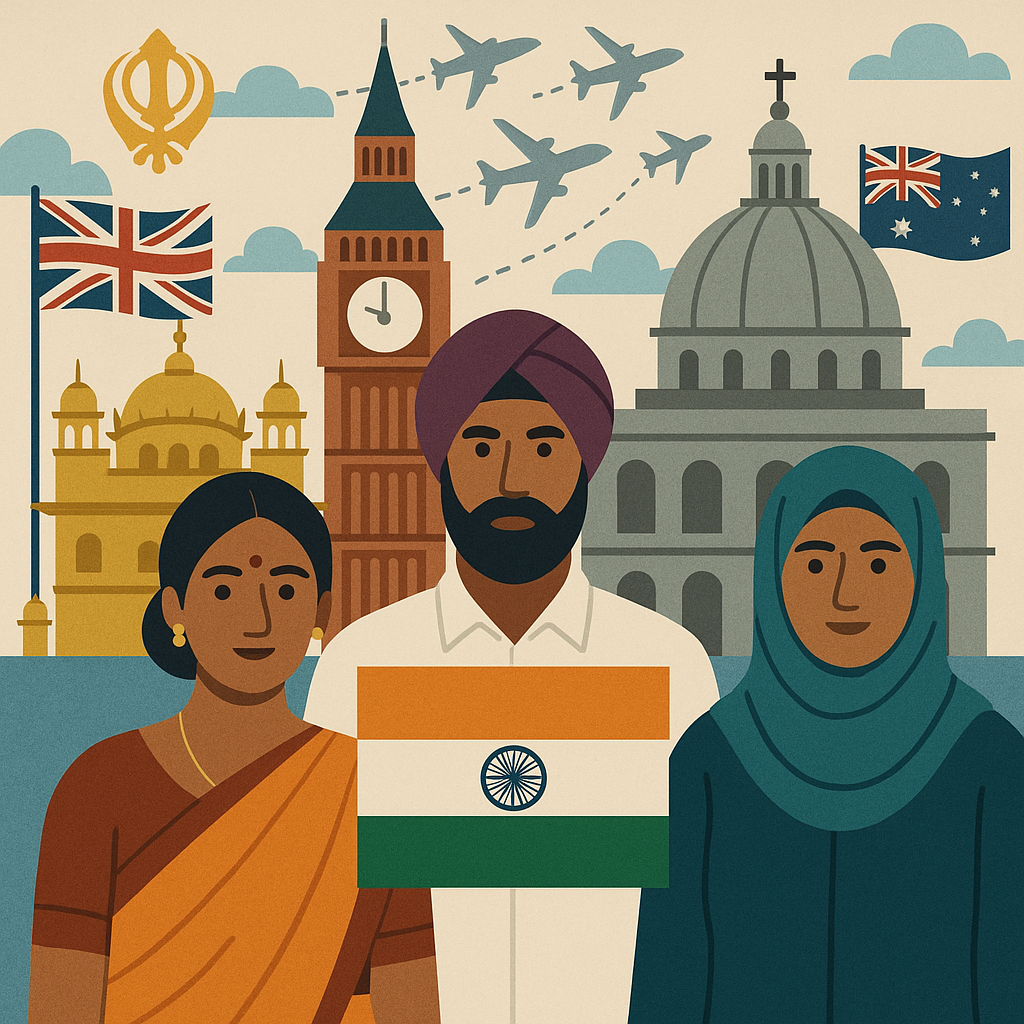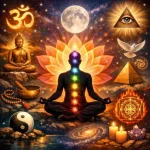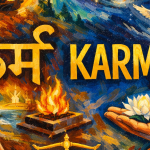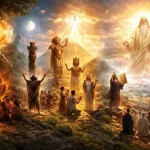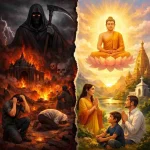Religion, Migration & Identity: The Indian Diaspora in the UK, Europe & Australia
Over the past century, the Indian diaspora has grown into one of the world’s most dynamic and influential communities. From London’s Southall to Sydney’s Parramatta, Indian migrants have carried with them not just their skills and ambitions, but also their religions, rituals, and spiritual worldviews. For millions living far from home, faith has become more than a personal belief — it is a bridge of belonging, a reminder of cultural roots, and a way to redefine identity in multicultural societies. The story of Indian religion abroad is, in many ways, the story of adaptation, resilience, and renewal.
Migration and the Spiritual Suitcase
When Indians first migrated to the UK, Europe, and Australia — whether as post-colonial workers, students, or professionals — they carried a piece of India within them: their gods, festivals, and customs. In the early decades, migrants often faced loneliness, racial barriers, and cultural disconnection. Temples, gurdwaras, and mosques became the heart of their community life.
These religious spaces were not merely for worship — they became centers of language learning, social bonding, and cultural education for the next generation. The smell of incense in a small London temple or the sound of kirtan in a suburban gurdwara reminded migrants of home. Faith gave them continuity when everything else around them was unfamiliar.
But as the diaspora grew more established, these institutions evolved. They began to engage with local societies, participate in interfaith dialogues, and use festivals as tools of cultural diplomacy. Religion, once a way to preserve identity, gradually became a way to share it.
The UK: Faith and Integration
The United Kingdom has the largest Indian diaspora in Europe — over 1.8 million people of Indian origin. Among them are Hindus, Sikhs, Muslims, Christians, and Jains. Religion plays a visible role in their community organization.
In cities like London, Leicester, and Birmingham, Hindu temples such as the Neasden Swaminarayan Mandir stand as architectural landmarks — symbols of integration and pride. Sikh gurdwaras not only serve as places of prayer but also run community kitchens (langars) for people of all backgrounds. Muslim organizations offer charity, education, and cultural outreach.
What’s remarkable is how these faith institutions have adapted to British society. They use English for sermons, invite local politicians to Diwali or Vaisakhi celebrations, and promote volunteerism beyond religious lines. For younger generations born in Britain, religion often becomes a cultural identity — something that connects them to both their Indian heritage and their global citizenship.
However, challenges persist. The balancing act between tradition and modernity, and between faith and secularism, is complex. Many young British Indians negotiate multiple identities — being British, Indian, and spiritual — all at once.
Europe: Diversity and Dialogue
Across continental Europe, Indian communities are smaller but steadily growing — especially in Germany, the Netherlands, France, and Italy. Here, religion often plays a quieter but deeply meaningful role.
In Germany and the Netherlands, Indian professionals and students are building small but active temples and cultural associations. Festivals like Diwali, Holi, and Guru Nanak Jayanti are celebrated not just by Indians but also by locals curious about Indian traditions.
In France and Italy, where Catholicism historically dominates, Hindu and Sikh communities have had to navigate stricter secular frameworks. Yet, this has also encouraged dialogue and understanding. Indian religious communities often engage in charity and educational programs that align with European values of tolerance and social welfare.
For many migrants, religion in Europe is less about conversion or assertion and more about community. A Sunday gathering for bhajans or a small Ganesha Chaturthi celebration becomes a space to share food, laughter, and memories of India. In that simplicity lies a powerful preservation of culture.
Australia: A New Spiritual Landscape
Australia represents a newer and rapidly expanding chapter of the Indian diaspora story. With over 900,000 people of Indian origin, religion is shaping the multicultural character of Australian cities like Melbourne, Sydney, and Brisbane.
Indian temples and gurdwaras are growing rapidly, often doubling as cultural centers and meditation hubs. The Sri Venkateswara Temple in Helensburgh near Sydney and the Sikh temples in Melbourne attract thousands every weekend. These spaces welcome not only Indians but also Australians seeking mindfulness, yoga, and vegetarian living.
Interestingly, Australian society’s openness to alternative spirituality has made Indian faith traditions particularly appealing. Yoga studios, meditation retreats, and Ayurveda centers draw inspiration from Indian philosophy, making the boundaries between religion, wellness, and lifestyle increasingly fluid.
For Indian youth in Australia, religion is often a gentle anchor — something that connects them to their parents’ homeland while helping them navigate a liberal, diverse society.
Faith as a Living Identity
Across continents, one theme is clear: religion for the Indian diaspora is not static — it is dynamic, adaptable, and inclusive. Faith gives meaning to migration. It helps preserve values like family, respect, and service, while also teaching openness to other cultures.
Younger generations are interpreting religion in fresh ways. For them, being spiritual doesn’t necessarily mean being ritualistic. They might attend Diwali events, celebrate Gurpurab, or join in Eid feasts not out of obligation, but as expressions of shared identity and gratitude.
Social media has also become a modern temple. Instagram pages and YouTube channels run by diaspora communities share devotional music, festival updates, and moral reflections, connecting Indians across continents. Digital devotion now complements physical community.
Many Homes, One Spirit
The journey of India’s religions abroad mirrors the journey of India itself — diverse, resilient, and ever-evolving. In the temples of London, the gurdwaras of Melbourne, and the meditation centers of Berlin, the Indian diaspora is weaving a new spiritual map — one that blends ancient faith with modern life.
~Religion World Bureau

